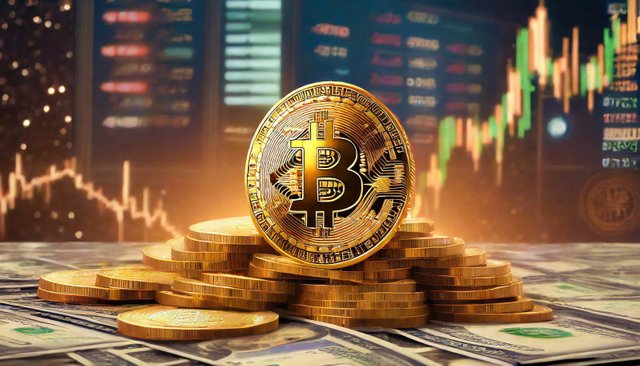Bitcoin, Binance, Ethereum, Solana and Ripple: The biggest crypto news of the past week
With its disruptive announcements, technological advancements, and regulatory upheaval, the cryptocurrency landscape keeps demonstrating that it is a place of boundless creativity as well as a battleground for laws and policies.
The most important stories from the previous week pertaining to Bitcoin, Ethereum, Binance and Solana, and Ripple are outlined below.
SEC Chairman Gary Gensler has reaffirmed that Bitcoin is a commodity rather than a security, which is an important distinction for the regulatory environment. This explanation stems from the fact that Bitcoin is decentralised, setting it apart from other cryptocurrencies that are frequently governed by a single institution.
Like gold or silver, Bitcoin is a commodity and is not subject to the harsher financial regulations that apply to securities. Bitcoin is now available for purchase through ETFs on the NYSE and Nasdaq. In spite of this development, Gensler stresses that more oversight is still needed in the cryptocurrency space to safeguard investors from fraud and abuse.
Vitalik Buterin, a co-founder of Ethereum, has cautioned that the network is getting close to a critical saturation threshold. The widespread utilisation of Layer 2 (L2) solutions, which leverage "blobs" to enhance Ethereum's efficiency, is driving these storage areas to a point where they are approximately 75% full.
In response, Buterin suggests raising the blobs per block capacity in order to prevent L2 protocols from becoming slower. EIP-7623 is a new improvement proposal that seeks to increase storage capacity while raising the cost of call data to limit block sizes. Many community members are in favour of this modification, including Coinbase L2 Base's Jesse Pollak, who sees it as a means to promote L2 growth without sacrificing network performance.
Changpeng Zhao, the founder of Binance, was freed from prison after serving four months. Nevertheless, he is unable to take on a senior position at Binance due to the conditions of his plea deal. Even though he still holds a majority stake in the company, the arrangement might restrict his direct control over its choices.
Any attempt to remove Binance's existing CEO Richard Teng could escalate relations with the authorities because he seems firmly established in his role. As a shareholder, CZ can still have some influence over important choices. In addition, his recent charitable endeavours, like a project offering free education, imply that he might take a break from running Binance and concentrate on other matters.
A significant shift in the digital asset market is being brought about by the remarkable comeback of ordinals on the Bitcoin network. Ordinal collections like NodeMonkes, Quantum Cats, and Pizza Ninjas are witnessing significant growth, whereas NFTs on Ethereum and Solana are finding it difficult to recoup pace.
NodeMonkes' floor price even increased to 0.2 BTC, or around $13,000. Ordinals have made a comeback following Runes' brief domination, which saw the protocol account for up to 70% of Bitcoin trade activity in August. In the NFT space, Ordinals are drawing in an increasing number of investors and reigniting interest in Bitcoin today. They have created a $759 million market and upended the ecosystem since their 2023 launch.
The much awaited Hamster Kombat (HMSTR) token airdrop has gone terribly wrong, leaving investors and the cryptocurrency community furious. The launch on September 26, 2024 was tainted by the unexpected exclusion of a large number of active participants who were thought to favour influencers.
Anger also resulted from numerous delays and technical problems that kept many users from getting their tokens. The token's launch price of merely $0.01 dealt the ultimate blow, as its value dropped dramatically by 60%—much less than some influencers had predicted.
Recently, the SEC brought attention to how important speculation is to the estimation of XRP, Ripple's partner cryptocurrency. According to a crucial document from the SEC's complaint against Ripple, speculation plays a significant role in both setting the price of XRP and determining some of its other uses, such as supplying the liquidity required to integrate into On-Demand Liquidity (ODL) products.
But this reliance on conjecture makes one wonder if XRP will be stable in the long run. A decrease in speculative activity may have an impact on XRP's liquidity and raise concerns about its applicability to international payment systems. The possibility of the ongoing legal action has an adverse effect on XRP's present performance as well; its price is currently at $0.59. The future of cryptocurrencies may depend on how this lawsuit turns out.
